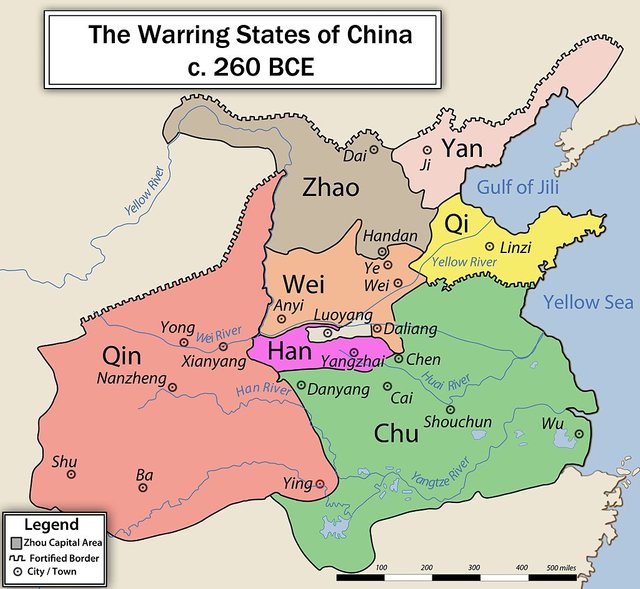Do you want to see the inside of a Chinese beauty skirt?



As I watched the debates of my senior American and the Chinese prince, I had many thoughts and feelings.
The differences of opinion between the two were not narrowed at all, and only conflict and confrontation worsened.
It seems that the reason why the two people are arguing without compromising is because of the difference between the US and China.
I thought about what is the difference between the US and China.
Well, I don't know much about America, so I studied Chinese history and geography I know well. So, I posted a map of modern China and a map of China 2500 years ago.
Modern China is four times larger than China 2500 years ago.
Modern China was built by the Qing Dynasty of Manchuria, so it was a completely different country from the ancient Chinese. The ancient Chinese and the modern Chinese are a completely different race. Modern Chinese are a mixed race of Manchurian, Mongolian, Tibetan, Uighur, and Turkish.
However, the Chinese claim that from ancient to modern China was a unified people, civilization and nation.
Thus, China's history from ancient times to the present day is recorded as a unity.
In my opinion, the existence of a unified empire built by the Chinese was about 1000 years, and the rest was a period of 1000 years of division and foreign dynastys. Half of China's history is occupied by foreign dynasties who conquered China. However, modern Chinese claim that all of China's history for 2000 years is owned by Chinese.
The reason for the assertion of modern Chinese people can be understood by looking at the maps of China. Big cities such as Beijing, Nanjing and Xian, which form the heart of modern China, were all built 2500 years ago.
Big cities such as Beijing and Xi'an were all capitals of the ancient kingdoms built in The Warring States period (simplified Chinese: 战国 时代; traditional Chinese: 戰國 時代;
The Warring States period (simplified Chinese: 战国时代; traditional Chinese: 戰國時代; pinyin: Zhànguó Shídài) was an era in ancient Chinese history characterized by warfare, as well as bureaucratic and military reforms and consolidation. It followed the Spring and Autumn period and concluded with the Qin wars of conquest that saw the annexation of all other contender states, which ultimately led to the Qin state's victory in 221 BC as the first unified Chinese empire, known as the Qin dynasty.
Although different scholars point toward different dates ranging from 481 BC to 403 BC as the true beginning of the Warring States, Sima Qian's choice of 475 BC is the most often cited. The Warring States era also overlaps with the second half of the Eastern Zhou dynasty, though the Chinese sovereign, known as the king of Zhou, ruled merely as a figurehead and served as a backdrop against the machinations of the warring states.
The "Warring States Period" derives its name from the Record of the Warring States, a work compiled early in the Han dynasty. https://en.wikipedia.org/wiki/Warring_States_period
The capitals of the ancient Chinese kingdoms become the bases of China's politics, economy, transportation, and military, and the capitals of all subsequent Chinese and foreign dynasties. Xi'an, Nanjing and Luoyang have been the capitals of Chinese dynasties for more than 1000 years. Beijing, on the other hand, is the capital of the Manchurian and Mongolian dynasties. Modern Chinese insist that the foreign dynasty is included in the history of China because it built the capital of foreign dynasties in the capital of the kingdoms of ancient China. It means that all foreigners who lived in the territory of China also become Chinese
These modern Chinese cities have a history of more than 2000 years as the capital of Chinese and foreign dynasties. In conclusion, large cities such as Beijing, Nanjing and Xi'an are independent kingdoms. Modern China appears to be a unified country, but it is actually a feudal system centered on large cities. Thus, royals and nobles live in the big cities, and serfs live in the countryside. Apparently, China seems modernized, but it is actually dominated by feudal kingdoms that have been around for 2500 years.
Xi Jinping in Beijing can be regarded as the lord of the united feudal kingdoms. Xi Jinping is a Maximum warlord who owns China's most powerful People's Liberation Army and controls many of China's warlords.
The Romance of Three Kingdoms三國志演義 is the imperial fantasy of China. The "Warring States Period"戰國時代 is a documentary of Chinese feudalism. The "Warring States Period" 戰國 時代 lets you look into the skirt of a Chinese beauty. Compared with biblical history, The "Warring States Period" 戰國 時代 is similar to Joshua, Judges, and Samuel.
My esteemed American senior will be able to understand the psychology of the Chinese prince by looking at The "Warring States Period"戰國 時代.
I appreciate your provision of this historical examination of the mighty Chinese empire. It is indeed illustrative of the ideological separation between myself and @soo.chong163, and reveals the likelihood that separation will be difficult to bridge.
Thanks!
Good morning, is the US morning? Korea is now night. Thank you for complimenting my lack of writing. I saw a typo and I'll fix it and sleep. Please stay healthy and live longer.